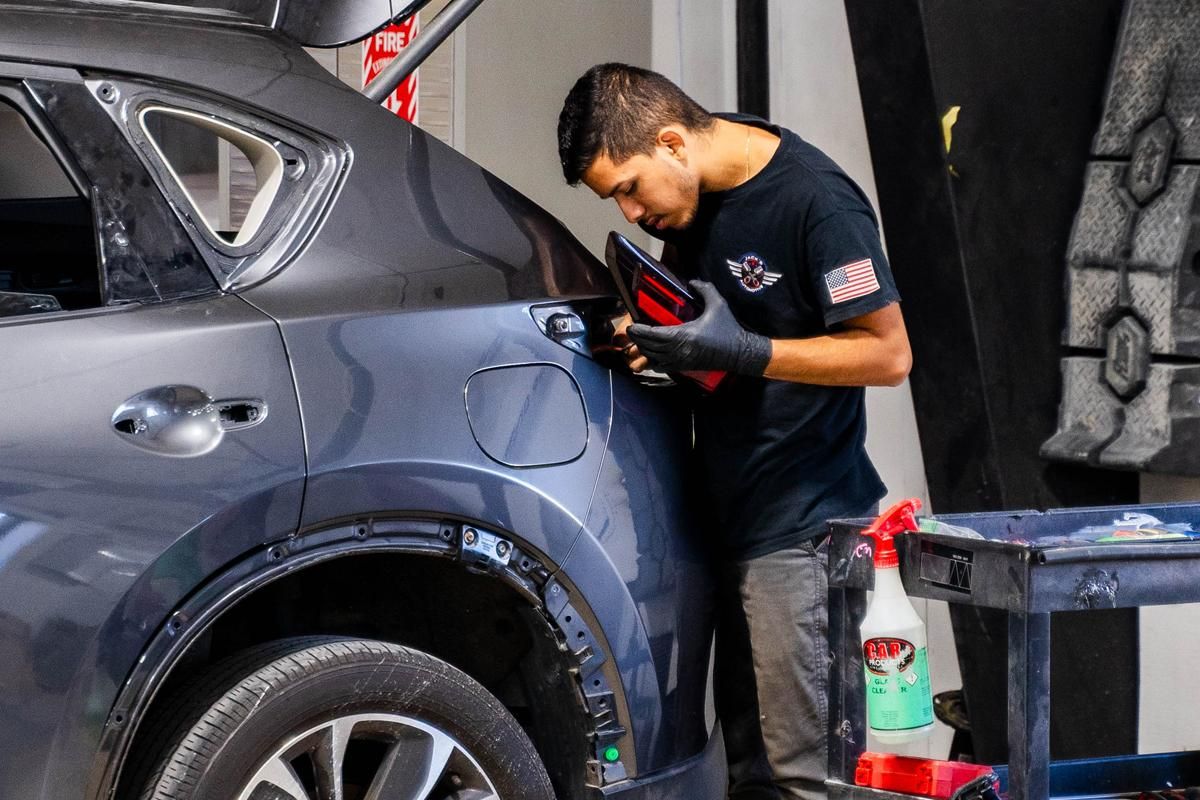As consolidation in the collision repair industry continued to pick up in 2024, Focus Advisors, an M&A advisory firm, estimated hundreds of single shops closed their doors over the year without an exit to a buyer.
Autobody News spoke to Chris Lane, president of Focus Advisors, about why single shops are leaving the industry, and the opportunities owners have to move forward.
Lane said the collision repair environment has been difficult for all shop operators since the COVID-19 pandemic in 2020, but especially so for smaller ones that don't have the same access to scale as large MSOs, which make it easier to run more efficiently.
2024 was particularly difficult because of a drop-off in claims counts after the "blip" of inflated work in progress during the pandemic. "That hit pretty much everybody in the U.S.," he said.
Fewer claims means less revenue, and the value of a business to a potential buyer is in its profitability. In an industry like collision repair, which already operates on thin profit margins, Lane said many smaller shop owners start trimming discretionary costs -- which usually means "the workplace just isn't as pleasant to be in as it was before, or maybe the quality of service that you're giving your customers isn't quite what it used to be.
"There aren't that many levers to increase profitability if you're finding that your sales are slumping and your margins are decreasing," Lane said.
 Chris Lane.
Chris Lane.
There are only a few items in a shop's profit and loss statement that can be manipulated to try to increase profits: sales; operations efficiency in vendor contracts; and expenses, the largest of which are usually rent and labor.
"There's not much you can do if you're not going to cut people's salaries, and good luck getting your landlord to to rethink your rent," Lane said. "So there isn't a lot there to take a store that is struggling and turn it around easily."
Focus Advisors is selective about the clients it represents, Lane said, but has worked with sellers who seem to have a great business operating profitably, but can't find a buyer.
"Sometimes it's location," Lane said. "You can't pick up a business and move it somewhere else."
Private Equity Considering Smaller Deals to Gain Entry
In its 2024 review, Focus Advisors said some private equity firms showed a new willingness to move further downstream in the growth process, considering operations with just a few locations and modest profits. Until early 2024, private equity firms would only consider partnering with owners of platforms that had five or more locations and $20+ million in revenue.
"A lot of these larger private equity firms have a lot of money that they have to put to work," Lane explained. "That means that they need to write a check that's $10 million, $20 million, $30 million, not a $5 million check. So you've got to start with something big."
However, they realized that such transactions were few and far between and faced intense competition.
As a result, they began approaching entrepreneurs of much more nascent platforms. This shift became evident in November when TRP Capital acquired a three-shop MSO in Long Island to launch a new platform called Driving Force. That same month, Envest Capital Partners acquired a one-shop operator, Authentic Auto Body, to launch a platform.
"Our thesis is is that getting into collision repair specifically at that kind of size has been so competitive, and is such a rare opportunity, that private equity firms have decided that an alternate strategy might be to start a little bit smaller in a region with an operator who they think is excellent," Lane said.
Lane said those deals are still "more the exception than the rule," but they allow a private equity firm to build a platform that it can then sell to a larger firm in the next five to seven years.
It could also mean an opportunity for a single shop operator looking to sell, or one looking to partner with private equity to help grow the business, rather than through routes like taking out loans, which currently might have prohibitively high interest rates.
"This might be a good alternative," Lane said. "You've got capital, you've got somebody who can write checks, but more importantly, they've got the experience and know how to get from your two or three locations to 12 pretty quickly. They've done it in other industries, so they've got formulas to that that are proven to work."
Despite headwinds like increasing costs to repair, private equity firms are still highly interested in the collision repair industry, and see there is ample opportunity for consolidation.
"It's still what would be called highly fragmented," Lane said of the industry. Currently, about 30% of the shops in the U.S. are owned by consolidators, but that means 70% are not.
Advice for Single Shop Owners Hoping to Sell
Lane said if a shop isn't attractive to a regional or national buyer, it's highly unlikely a local entrepreneur will "write you a check and let you walk away."
He said there are a couple other routes for single shop owners hoping to sell.
The first is to help an existing employee, or group of employees, to take out a loan to purchase the business, or offer options -- "some way to have them be vested in the business, give you a little bit of money for it. And then hope that they succeed over time.
And that's one way to sort of exit and get some value for what you have."
The other is to sell the business at a bit of a discount, but hold on to the real estate and rent it to the new business owner.
"If you own your real estate, the value of that real estate could be a lot more than the value of your business," Lane said. "Let's say your business isn't very profitable, but you're in a good location and you know your real estate's probably worth something.
You can sometimes get a national or regional buyer to come in and give you very little for the business, but secure a nice lease.
"That will give you not just 'mailbox money,' but also increase the value of that real estate, because now you have a tenant in there who has credit a good balance sheet," Lane said.
"We've actually done this with a couple people when we see a business that might not be incredibly attractive to a national or regional buyer because of its profitability," he said. "That ends up being a better walk-away value than trying to maximize the business value."














Abby Andrews